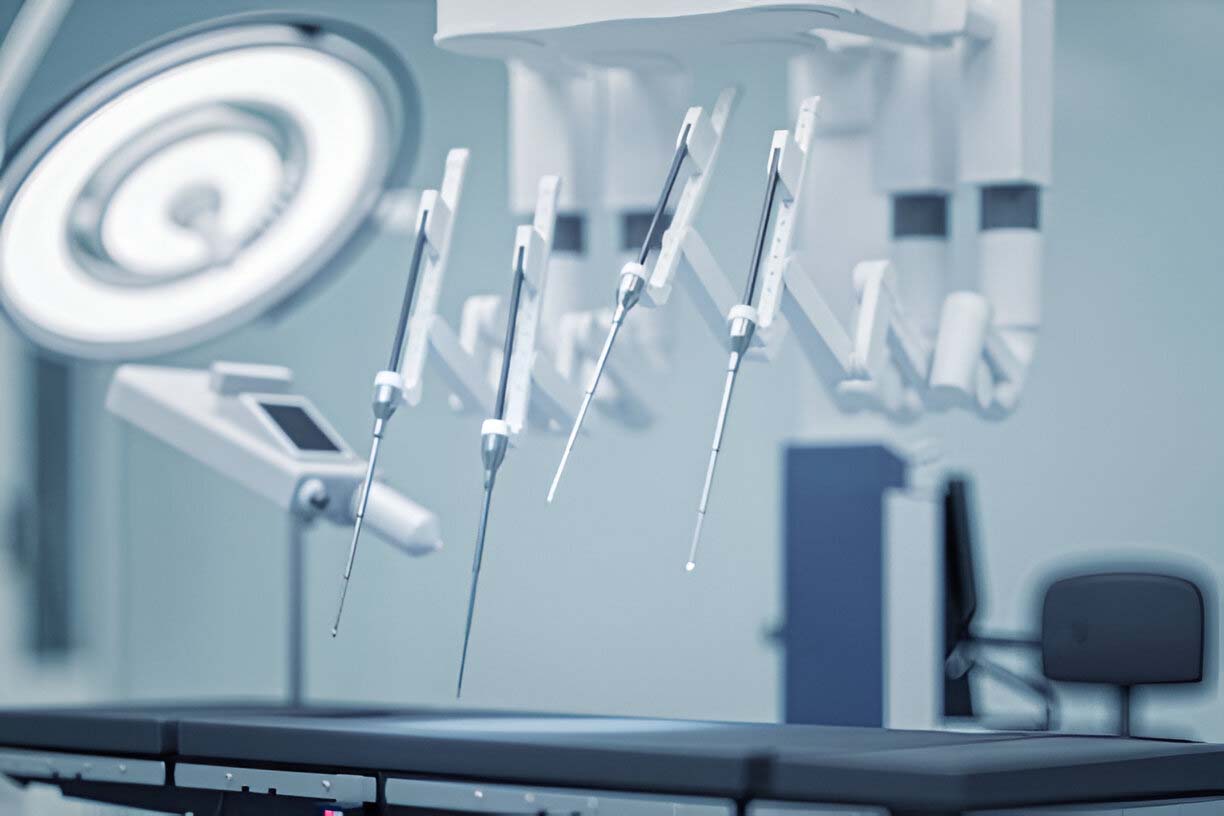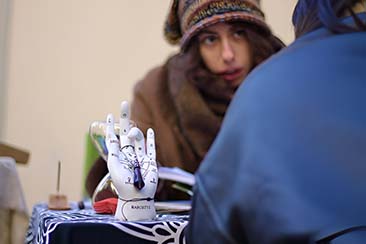The field of medicine is changing rapidly, altering how healthcare professionals diagnose, treat, and care for patients. Innovations in digital health, artificial intelligence, and personalised medicine are transforming patient experiences and medical outcomes.
As these advancements continue to develop, the need for well-trained healthcare professionals is growing, highlighting the importance of a solid educational foundation. Understanding these trends is vital for anyone aiming to enter or progress in the healthcare industry.
The swift advancement of medical technology is not only improving patient care but also redefining the roles of healthcare professionals. New tools, such as AI-driven diagnostics and robotic-assisted surgeries, are enhancing accuracy and efficiency in treatment. Meanwhile, the focus on holistic and preventative care is shifting the healthcare model from reactive to proactive, prioritising disease prevention over treatment alone.
These advancements bring opportunities and challenges, necessitating professionals to continually update their knowledge and adapt to a constantly evolving landscape. As healthcare becomes more intertwined with technology and data-driven solutions, a strong educational background will be crucial for those seeking to succeed in this dynamic field.

Digital Health and Telemedicine
One of the most notable changes in modern medicine is the swift growth of digital health and telemedicine. The option to consult with doctors remotely has transformed access to care, especially for patients in rural or underserved regions. Telehealth services enable individuals to receive medical attention without needing to visit in person, cutting travel time and boosting efficiency for both patients and healthcare providers.
Furthermore, the use of AI-powered chatbots and remote monitoring devices has improved patient engagement and real-time health tracking. Wearable technology, like smartwatches and fitness trackers, allows individuals to monitor vital signs, spot abnormalities, and share data with healthcare professionals for timely intervention. As digital health tools continue to advance, they are anticipated to be crucial in preventive care and managing chronic diseases.
Artificial Intelligence and Big Data in Healthcare
Artificial intelligence is transforming healthcare by facilitating quicker and more accurate diagnoses, ultimately enhancing patient outcomes. AI-driven imaging and diagnostic tools can accurately evaluate medical scans, often identifying diseases like cancer earlier than conventional methods. Additionally, machine learning algorithms are being utilised to sift through extensive patient data, uncovering patterns that aid in predicting disease progression and suggesting tailored treatment plans.
In addition to diagnostics, AI is improving administrative tasks, reducing paperwork, and streamlining hospital operations. Predictive analytics enable healthcare providers to foresee patient needs, manage resources effectively, and reduce hospital readmissions. Nonetheless, as AI and significant data use grow, ethical issues regarding patient privacy and data security continue to be a substantial concern. As technology evolves, regulatory frameworks will be crucial to ensure the ethical application of AI in the medical field.

Personalised and Precision Medicine
Personalized medicine transforms healthcare from a one-size-fits-all model to a more tailored approach. With genetic testing and biotechnology advancements, doctors can now customise treatments based on a person’s genetic profile, lifestyle, and medical history. This method is especially advantageous in oncology, where targeted therapies enhance cancer treatment results and lessen adverse side effects.
Precision medicine is also progressing in managing chronic conditions like diabetes and cardiovascular diseases. By examining genetic markers and environmental influences, healthcare providers can develop personalised treatment plans that maximise effectiveness while reducing risks. As research continues to reveal new genetic information, the future of medicine will increasingly focus on individualised care rather than broad treatment strategies.
The Importance of Earning a Bachelor’s Degree in Healthcare
With the healthcare landscape evolving rapidly, professionals must be equipped with the necessary knowledge and skills to navigate these changes. Bachelor’s degrees in healthcare are a crucial step for individuals looking to enter the field or advance their careers. These programs provide a strong foundation in medical sciences, healthcare administration, and patient care, preparing students to meet the demands of modern medicine.
A healthcare degree opens various career paths, from clinical roles to leadership positions in hospitals, research institutions, and public health organisations. As new technologies and treatment methods emerge, healthcare programs constantly evolve to ensure that graduates are adequately prepared. Institutions like Grand Canyon University now offer specialised courses incorporating the latest advancements in digital health, data analytics, and patient-centred care.
A healthcare degree expands job prospects and fosters critical thinking, communication, and problem-solving skills—key attributes for any healthcare professional. As patient care increasingly requires interdisciplinary collaboration, those with a solid educational foundation will be better equipped to work alongside diverse medical teams and deliver high-quality care.

Robotics and Automation in Surgery and Care
Using robotics and automation in healthcare is transforming surgical procedures and hospital operations. Robotic-assisted surgeries provide greater precision, smaller incisions, and quicker recovery times, benefiting both patients and surgeons. These systems enhance a surgeon’s ability to carry out complex procedures with improved dexterity and less fatigue.
Automation also changes routine hospital tasks, such as medication dispensing, patient monitoring, and administrative duties. AI-driven automation streamlines workflows minimises human error, and allows healthcare professionals to concentrate more on direct patient care. As these technologies continue to advance, they will be vital in improving efficiency, lowering costs, and enhancing the overall patient experience.
Mental Health and Holistic Patient Care
In recent years, mental health has become widely recognised as a vital aspect of overall well-being. The integration of mental health services into primary care is helping to close the gap between physical and psychological health. Teletherapy and digital mental health platforms have made it easier for people to access professional support, dismantling barriers related to stigma and accessibility.
Holistic medicine is also on the rise, with healthcare providers incorporating alternative therapies like acupuncture, meditation, and nutritional counselling into treatment plans. This patient-centred approach acknowledges the link between mind and body, highlighting the significance of lifestyle, stress management, and emotional well-being in preventing and recovering from illness. As mental health continues to gain importance, healthcare systems are striving to offer more comprehensive and accessible mental health services.
The Role of Preventative and Lifestyle Medicine
Preventative medicine is shifting the focus of healthcare from treating illnesses to preventing them before they arise. Lifestyle medicine, which promotes healthy habits such as proper nutrition, exercise, and stress reduction, is becoming a key component of modern healthcare strategies. Personalized wellness plans, guided by genetic testing and health data analytics, allow individuals to make informed choices about their long-term health.
Wearable technology and mobile health apps are essential in preventative care. They help individuals track their fitness, monitor vital signs, and receive real-time health recommendations. Healthcare professionals also integrate lifestyle coaching and patient education into treatment plans, empowering individuals to participate actively in their health. As preventative and lifestyle medicine continues to gain momentum, it will be crucial in lowering healthcare costs and enhancing population health outcomes.
Conclusion
Technological innovations, personalised treatment approaches, and a growing emphasis on holistic and preventative care are shaping the future of medicine. Digital health, artificial intelligence, and robotics are transforming patient experiences, while advancements in precision medicine provide new hope for effective treatments. As these trends evolve, the role of healthcare professionals will become increasingly vital.
Obtaining a bachelor’s degree in healthcare equips individuals with the essential knowledge and skills to navigate these changes and contribute to the future of patient care. As the healthcare landscape progresses, those with the proper education and expertise will improve medical outcomes and enhance the quality of care for future generations.








